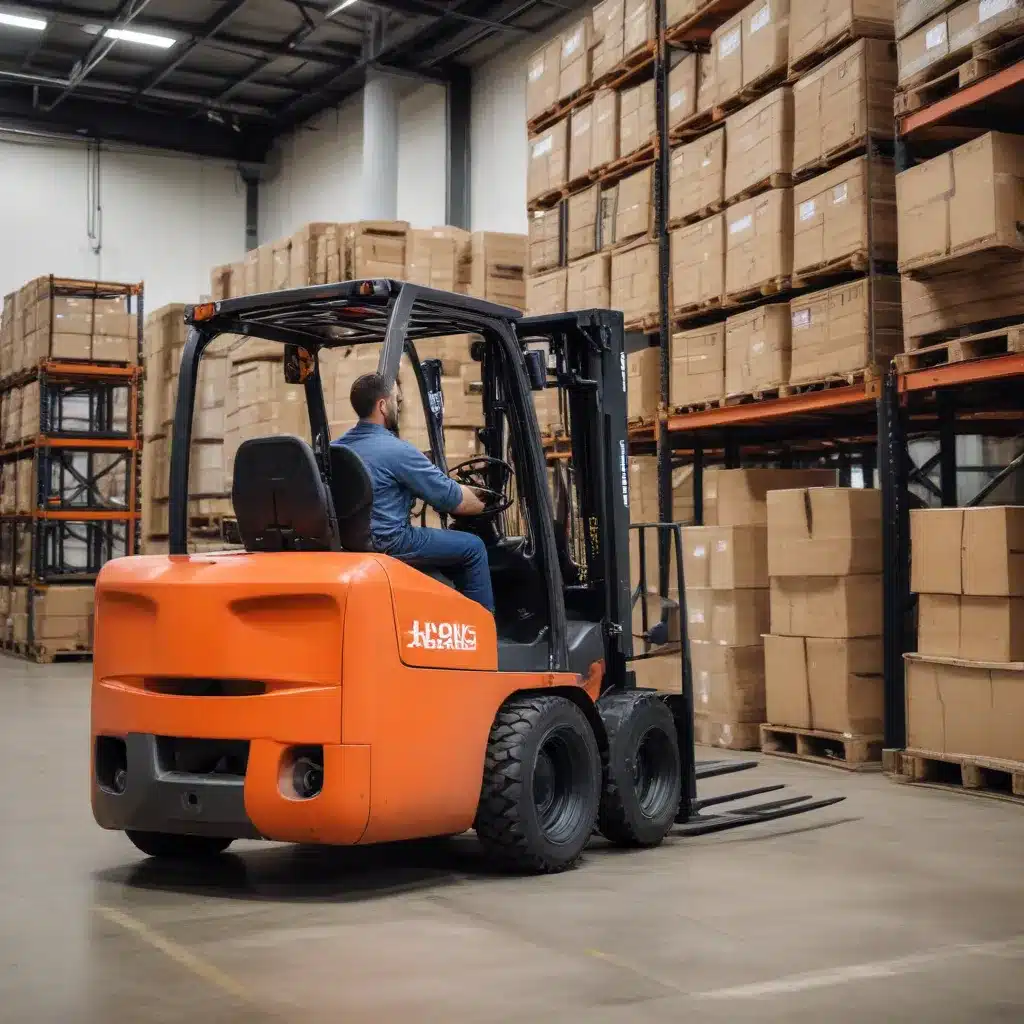
The Evolving Landscape of Forklift Solutions
In today’s dynamic business environment, the choice between forklift leasing and buying has become a strategic decision that can significantly impact a company’s operations, finances, and sustainability initiatives. As the forklift industry continues to evolve, with advancements in technology, environmental regulations, and shifting market demands, it’s crucial for organizations to carefully evaluate their options to align their material handling solutions with their long-term goals.
The Rise of Eco-Friendly Forklifts
One of the most notable trends in the forklift industry is the growing emphasis on sustainability and environmental responsibility. Driven by increased awareness of climate change and the need to reduce carbon footprints, businesses are increasingly turning to eco-friendly forklift solutions, such as electric and hybrid models. These cutting-edge forklifts not only minimize emissions but also offer enhanced energy efficiency, lower operating costs, and quieter operations – making them ideal for indoor environments.
Electric forklifts, in particular, have become a game-changer, as they eliminate the need for costly and environmentally-harmful fossil fuels. By leveraging lithium-ion battery technology, these electric forklifts can provide extended run times, reduced maintenance requirements, and a longer lifespan – all while aligning with the growing demand for sustainable business practices.
Navigating the Lease vs. Buy Decision
When it comes to acquiring forklifts, businesses have two primary options: leasing or purchasing. Each approach has its unique advantages and considerations, and the right choice ultimately depends on the specific needs and goals of the organization.
Forklift Leasing:
– Predictable Costs: Leasing forklifts often provides a more predictable and manageable cost structure, with fixed monthly payments that can be easily incorporated into the company’s budget.
– Flexibility: Leasing allows businesses to adapt to changing market conditions and evolving operational needs more easily. When the lease term ends, companies can choose to upgrade to newer, more efficient models.
– Maintenance and Repairs: Many leasing agreements include comprehensive maintenance and repair services, transferring the burden of upkeep to the leasing provider.
– Tax Benefits: Forklift lease payments are generally considered operating expenses, which can provide tax advantages compared to outright ownership.
Forklift Buying:
– Long-Term Ownership: Purchasing forklifts outright offers the benefit of long-term ownership, providing a sense of control and the ability to customize the equipment to specific requirements.
– Potential Cost Savings: Over the lifespan of the forklift, the total cost of ownership may be lower than leasing, especially for companies that operate their equipment for extended periods.
– Resale Value: Owned forklifts can be resold at the end of their useful life, potentially recouping a portion of the initial investment.
– Customization Opportunities: Businesses that opt to buy their forklifts have more freedom to configure the equipment with specialized attachments or modifications to suit their unique operational needs.
Aligning Forklift Choices with Sustainability Goals
As businesses strive to reduce their environmental impact and embrace sustainable practices, the choice between forklift leasing and buying becomes increasingly important. Aligning material handling solutions with sustainability objectives can have far-reaching benefits, from enhancing green credentials to achieving long-term cost savings.
Embracing the Shift to Electric Forklifts
The growing prominence of electric forklifts presents a significant opportunity for businesses to demonstrate their commitment to sustainability. By incorporating these eco-friendly models into their operations, companies can:
– Reduce Carbon Footprint: Electric forklifts produce zero direct emissions, contributing to a lower overall carbon footprint for the organization.
– Comply with Regulations: Many regions and municipalities are implementing stricter environmental regulations, and the adoption of electric forklifts can help companies stay ahead of these compliance requirements.
– Enhance Corporate Social Responsibility: The use of electric forklifts can be a tangible demonstration of a company’s dedication to sustainable business practices, strengthening its brand reputation and appeal to environmentally-conscious consumers.
When it comes to acquiring electric forklifts, the leasing option may be particularly attractive, as it allows businesses to leverage the latest technology without the need for significant upfront capital investment. Leasing agreements can also include maintenance and battery replacement services, further simplifying the transition to eco-friendly material handling solutions.
Maximizing the Longevity of Forklift Assets
Regardless of whether a company chooses to lease or buy their forklifts, prioritizing long-term asset management can contribute to the overall sustainability of the operation. Strategies such as:
– Preventive Maintenance: Implementing a robust preventive maintenance program can extend the lifespan of forklifts, minimizing the need for early replacement and reducing resource consumption.
– Operator Training: Comprehensive operator training on proper handling and safety protocols can help maximize the useful life of forklifts, reducing the risk of damage and premature wear.
– Telematics and Data-Driven Decisions: Integrating forklift telematics systems can provide valuable data on usage patterns, maintenance needs, and operator performance, enabling informed decision-making that optimizes asset utilization.
By embracing these practices, businesses can ensure that their forklift investments, whether leased or owned, are aligned with their sustainability objectives and contribute to a more environmentally-responsible material handling strategy.
Navigating the Forklift Leasing vs. Buying Landscape
As organizations strive to balance operational efficiency, financial considerations, and environmental stewardship, the choice between forklift leasing and buying requires a thoughtful and strategic approach. By carefully evaluating the unique requirements and long-term goals of the business, decision-makers can identify the solution that best fits their needs.
To assist in this process, the experts at Forklift Reviews are here to provide comprehensive guidance and insights. Our team of seasoned industry professionals can help you navigate the evolving forklift landscape, explore the latest technological advancements, and align your material handling decisions with your sustainability objectives.
Whether you’re a small business or a large enterprise, our in-depth forklift reviews, safety guidelines, and maintenance tips can empower you to make informed choices that drive efficiency, enhance safety, and contribute to a more sustainable future. Contact us today to learn more about how we can help you optimize your material handling operations and achieve your sustainability goals.

